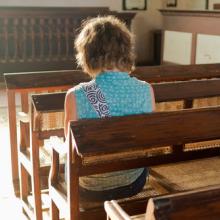social science
THIS IS NOT a column full of hand-wringing about the moral decay of U.S. society. Nor is it about my concern for the souls of my fellow citizens who are atheists, agnostics, or some other stripe of nonbeliever. I am worried about the growing number of religious “nones” in the United States, but not for those two reasons.
Let me be clear about something before continuing: Many of the people I love and admire most are religious “nones”—those who indicate “none of the above” on religious preference surveys. They include people of high intellect, great sensitivity, and deep character. In fact, many of them could give lessons in such areas to some of the religious people I know.
What they do not do is build hospitals, schools, colleges, or large social service agencies. Such institutions (when not built by the government) have generally been founded and supported by religious communities in the United States. This is not so much because religious people are always better human beings; it’s because religious communities value and organize such work at significant scale.
Religious communities play a profound role in U.S. civil society. About one out of every six patients in the U.S. is treated by Catholic hospitals. Most, if not all, have some sort of explicit commitment to serving the poor because of their faith identity. There are nearly 7,000 Catholic grade schools and high schools in the U.S., and more than 260 colleges. This is to say nothing of the refugee resettlement, the addictions counseling, or the services for homeless men and battered women provided by Catholic social service agencies.
Biblical literalism, and the corresponding idea of the inerrancy of scripture, has been bumping up against the sciences for a long time.
Way back in the Renaissance, the church insisted that the Bible taught that the sun revolved around the earth, and charged Galileo with heresy for claiming otherwise. Today, the debate between the Bible and natural science continues, most notably in the evolution/creation debate.
While discussions of religion and science usually revolve around conflicts with natural science, I'd like to propose that the place we really should be placing our attention is the relationship between faith and the social sciences.
As our understanding of all science grows, it becomes harder and harder to maintain the position of biblical literalism without seeming absurd.
Maybe we haven't all heard the thunder clap yet, but the lightning bolt struck a while ago. We are going to have to adjust our reading of the Bible to coincide with a modern scientific understanding of the universe. In broad strokes, that shift has already happened.

